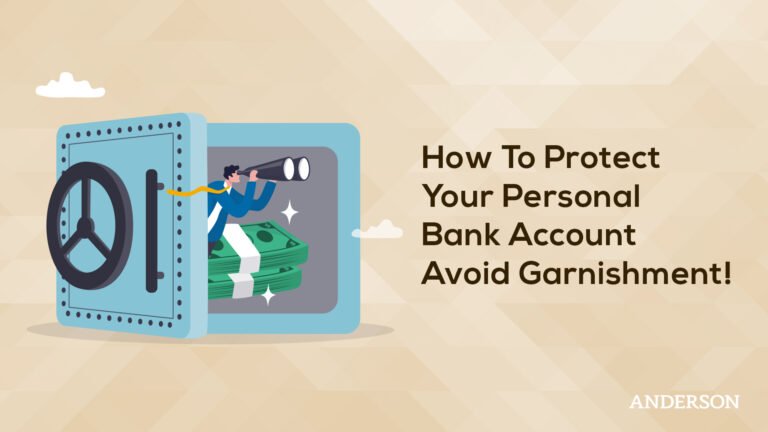Updated September 20, 2021
Becoming a landlord is a great way to get a passive stream of income. Whether you own single family homes, multifamily properties, or commercial real estate, a tenant sending you their monthly rent payment almost always surpasses the expenses you accrue in owning that property. But there’s a lot more to real estate than just collecting checks. Owning rental properties requires ongoing participation. Moreover, you will have to put in some work to become a successful landlord—but the continual payoff is worth it.
How to Become a Landlord
- Research landlord tenant laws.
- Learn about your real estate market.
- Get savvy with a cash flow calculator.
- Treat your rental income as a business.
- Protect your property—and yourself.
- Protect your cash flow.
Though a lot of ink has been spilled on what exactly millionaires and billionaires do to become so wealthy, most sources agree that real estate is involved. You may not be the CEO of an international real estate conglomerate, but you can replicate this wealth building model by being a landlord.
Again, the basic principle of being a landlord is quite simple. As a landlord, you own property that you lease out to paying tenants. The expenses you accrue in owning this property (such as taxes, maintenance costs, and perhaps paying a mortgage or your own loans off) are ideally lower than the rent you charge, which leaves you with a positive cash flow.
Unlike stocks (the prices of which can fluctuate wildly) or employment (which is subject to job performance and the whims of your employer) owning real estate is a fairly conservative, grounded way to create wealth. It’s difficult for anyone to take your land away from you (in fact, as long as you follow the law and pay your taxes, it’s nearly impossible). Rents do not fluctuate on a monthly basis, as they are negotiated beforehand. Put these two factors together and you’re left with a very solid cash flow enterprise.
But again, getting to this point requires a little homework. You will need to follow all these steps, without omitting any. Failure to get the right insurance policy, find the right property management company, or provide a comprehensive lease agreement can leave you exposed to risk.
But if you want to learn how to become a landlord, it can really be as simple as following this roadmap. Once you have your first property up and running, you’ll be more familiar with the process and able to replicate the process while building a portfolio of rental properties.
Without further ado, let’s dive into the steps you’ll need to take to get to the point where rent checks are showing up in your bank account.
How to Become a Landlord
Research Landlord Tenant Laws
You do not want to jump into becoming a landlord without understanding the legal obligations involved. In most states, owning property and charging rent is subject to many rules and restrictions. These local varieties of landlord tenant law are set up to protect both the landlord and the tenant from financial loss or even abuse—such as being locked into an unfair, one-sided contractual relationship. Any prospective landlord should research these laws or meet with a real estate attorney to get a firm grasp of the relationship between a landlord and tenant in their state.
There may be laws around how much rent you can charge, how much you can increase the rent annually, what you are obligated to repair, and how quickly you are obligated to repair it. You will even want to do some research into how your state handles those worst-case scenarios such as an eviction. Breaking these laws could cost you money in fines and fees, while exposing you to a lawsuit. This is an especially important to consider if you are thinking about investing in subsidized housing, which is highly regulated.
Learn About Your Real Estate Market
Once you’ve looked into landlord tenant laws and accepted the possibility of your responsibilities around renting property, it’s time to take a look around. There are many types of real estate markets, so you’ll want to assess what will be easiest and most lucrative for you to work with in terms of location and tenants.
For example, renting out a single family home to four college students may be an easy source of income with a low vacancy rate, but it may require more maintenance. On the other hand, homes in your immediate neighborhood may be beyond your mortgage carrying capacity, but just a few miles away there might be some affordable multifamily housing that you can turn into a quick cash cow.
This step of the process is all about balancing risk and reward while getting to know the housing market around you. To that end, your search might benefit from a good relationship with a real estate agent. Alternatively, a connection at a property management company might provide you with some inside knowledge of the local market and the prospective tenants that reside there.
Get Savvy with a Cash Flow Calculator
A home that looks like a great opportunity on the outside may prove to be a money pit (and not one that spits out money…one that sucks it in). You will always want to get a building inspector involved in your search for a rental property. Once you know the true condition of a home, you’ll know what you need to rehab, both in accordance with the landlord tenant laws we mentioned before and along the lines of your effort to charge more rent. There are many tools online that can help you estimate how much cash a property is likely to generate, along with how many expenses, such as repairs, taxes, and vacancy losses, you’ll have to deduct from that amount.
It’s important to crunch the numbers with your prospective rental property, whether it’s residential or commercial, and run comparatives to other properties in the immediate vicinity. Learning how to become a landlord should never impact personal finance to the point of becoming a risk, so learn how to identify which investments are risky, and which ones are built on solid ground (both figuratively and literally).
Assemble a Team and Outsource What You Can
If you’re serious about building consistent, passive income with real estate, you need to treat it like a real business. You should have a lawyer on retainer to help you deal with any legal issues. You will want to know some real estate agents to help you find tenants. You will want to know a few reliable and licensed contractors to perform maintenance, as necessary.
You should outsource as many things as you possibly can, as long as they don’t impact your cash flow too much. For example, while you might think it’s better to save a few hundred dollars every month and manage the properties yourself, paying a property manager or property management company to do that for you can save loads of stress. This is especially important if you are still engaged with your career and real estate rentals are your passive side income. Even if real estate becomes your main bread and butter, outsourcing as many details as possible allows you to keep moving and expand your portfolio or rental properties.
Protect Your Property—and Yourself
Once you’ve got yourself a rental property, you know what you need to do to fix it, and you’ve set your rental income up as a true business, it’s time to get some tenants in the building—and protect yourself from them. That doesn’t mean you should expect your tenants to give you problems. But it does mean you need to have a tenant screening process, such as a way to perform a credit check and background check. Tenant screening is a simple but effective way to filter out potential problems with collecting the rent or even a future eviction.
In addition to tenant screening, you need a real estate attorney to help you set up your lease agreement. This rental agreement will define the obligations of prospective tenants, such as a security deposit and renter’s insurance, while also defining the lease term.
Above all, you need to structure your rental property business along the lines of a limited liability company or LLC, so that if anything goes wrong, your personal assets (such as your own primary residence) won’t be targeted in a lawsuit between landlord and tenant. Homeowner’s insurance is a must to protect your assets. There may also be other types of insurance policies you should look into, depending on your location and your tenant.
Protect Your Cash Flow
A payment processing system—especially one that can take credit card numbers—will help those rent payments land right in your bank account on time. But once you start getting a direct deposit from your tenants every month, your work is not over. A big part of running a business successfully is protecting your cash flow from losses to taxes.
A good tax attorney or accounting firm can help you navigate tricky areas that can save you a significant amount of money, such as rental property tax deductions. Structuring your business the right way can also help you deduct expenses and write them off on your tax forms, such as the depreciation of certain parts of your property—even if housing prices are on the rise. With the right tax strategy, you can minimize your losses and allocate rental income towards expanding your business.
Become a Landlord Today!
Some of these steps might seem daunting, but their bark is louder than their bite. There are plenty of resources for getting started with real estate rentals—everything from local support groups or real estate investors to local grants (yes, actual free money) for aspiring landlords.
Oftentimes landlords find that once they take the first few steps towards a rental property, the rest of the process moves along just fine. Remember that even the most experienced investors make mistakes, and that these mistakes can become opportunities to learn how to do better next time.
Certainly, there are pros and cons to any type of real estate investing enterprise, including rental properties. But if you need a little boost of inspiration, remember the words of Mark Twain: “you should buy land…they’re not making more of it.”
Though his comment is witty, it also reminds us that having a place to live is at a limited premium—and not everyone is in a position to own their own property. In fact, most people have to rent, and some of them can rent from you. If you’re in a position to develop cash flow from real estate rentals, whether they are commercial or residential, you should certainly not pass up that opportunity.
If you’d like to learn more about strategies for protecting yourself while investing in real estate, schedule a complimentary consultation with Anderson Advisors today. You can schedule online or by calling 888.871.8535.
Bonus Video
Free Strategy Session with an Anderson Advisor
Receive a detailed risk assessment to assist in lowering problem areas that could wipe out all of your assets with one wrong move. Speak with an Anderson Professional Advisor to get your FREE Strategy Session.
Limited-Time Offer: ($750 value.)











